Features
Pete Mancini: The Daily Vault Interview (2022)
by Jason Warburg
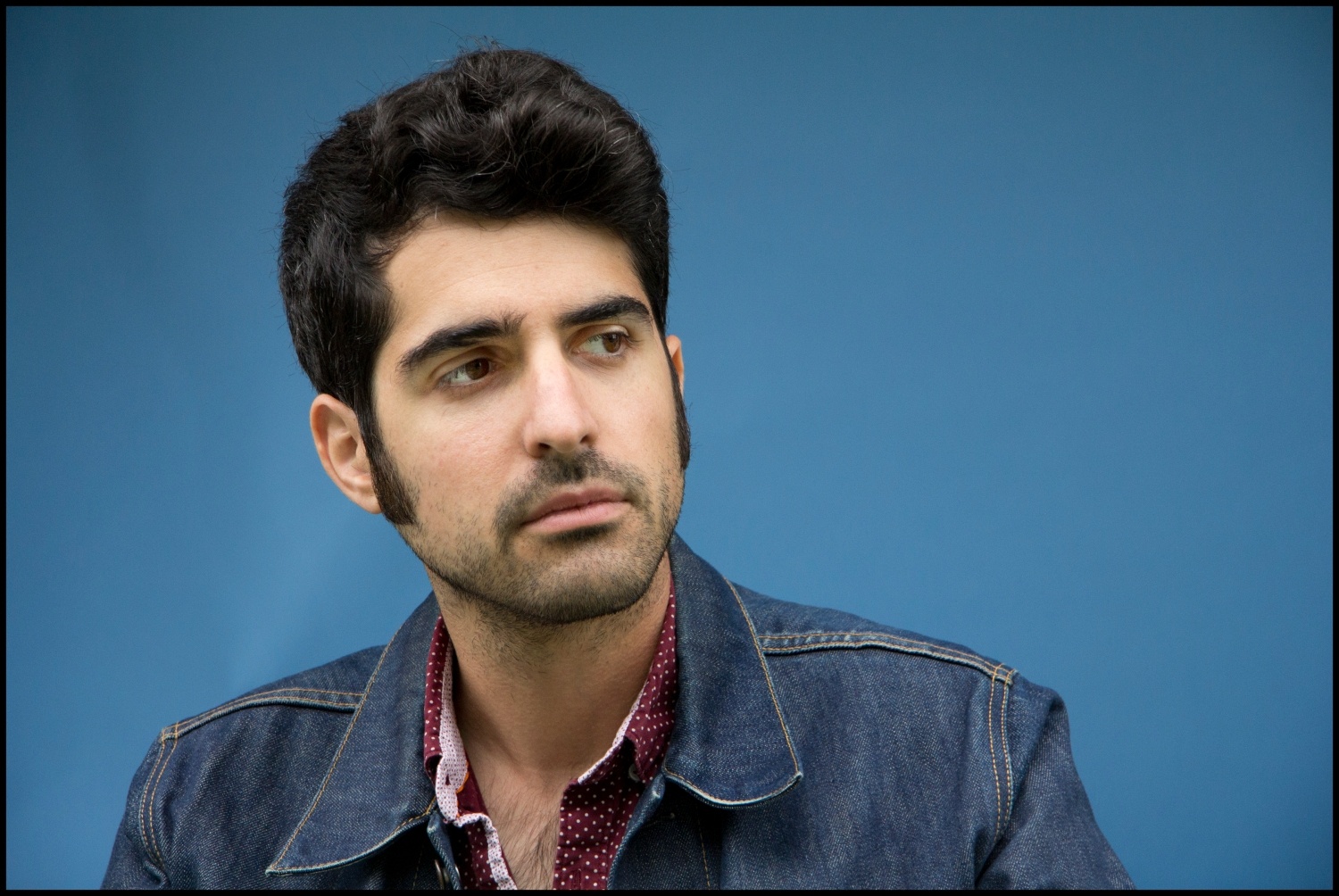
Pete Mancini pays attention. This is something you would understand even if you never spoke with the Long Island singer-songwriter; it’s right there in every one of his detailed, nuanced, emotionally resonant songs. Like so many of the best creatives, he seems to soak up events around him like a sponge and transmute them into art—in his case, songs that carry on the rich storytelling tradition of Americana, while increasingly infusing it with the melodic pizzazz of power pop.
Mancini’s new studio album Killing The Old Ways is his third as a solo artist, along with a live album and a handful of standalone singles. Prior to his 2017 solo debut Foothill Freeway, he spent seven years as the frontman and songwriter for Long Island quartet Butcher’s Blind.
The story behind the album is a long, strange trip indeed. Mancini’s original Spring 2020 booking into Dial Back Sound, the Mississippi studio owned and run by Matt Patton of the Drive-By Truckers and his partner Bronson Tew, was postponed multiple times by the COVID pandemic. In the end Mancini made a pair of anxiety-inducing, pre-vaccine trips south to hole up in the studio for a week at a time in summer and early fall 2020.
In the meantime, the United States busied itself—to borrow a phrase from Patton’s bandmate Patterson Hood—unraveling, as first the pandemic and then the killing of George Floyd and the lead-up to the 2020 presidential election roiled the nation. That turmoil coupled with chronic delays in vinyl production and the inability to tour led to the album release being postponed by a full year. In the meantime, Mancini’s best friend and frequent songwriting partner Travis McKeveny passed away unexpectedly. It left us with a lot to cover in this, our second conversation.
It must also be said that a conversation with Pete Mancini is like one of those dialogues with an old friend where one minute you’re just catching up and the next you’re flying off on a ten-minute tangent that goes so far into the weeds you’d need a whistle to find your way back. We could easily have filled a hour talking just about Tom Petty’s creative hot streak in the late ’80s through mid-’90s, or Jeff Tweedy’s strategies for fruitful creative work, or the thrill Mancini recently enjoyed of opening for all-time-great songwriter Jimmy Webb. Fortunately for you, Dear Reader, we also got around to talking about the evolution of Pete’s songwriting approach, the influences that shaped Killing The Old Ways, and the perils of playing too good of an opening set. With luck it won’t be another five years before we do this again.
In my review of Killing The Old Ways I talked about some of the influences I heard on this album—The Band, Neil Young, Dylan, and John Hiatt, to name four. There was also inevitably a hint or two of the Drive-By Truckers. But who were you thinking about and listening to and feeling influenced by as this album was coming together?
I was listening to a lot of Tom Petty. Some folks said they heard some Tom in there, and I definitely think that came out on a few tracks. I was also listening to a lot of Lilly Hiatt—I’m a big fan—so it’s interesting you say John Hiatt. Lilly is great. There’s some Justin Townes Earle in there too, but I was in a big Tom Petty phase when writing the majority of these tracks. I love the She’s The One soundtrack—“Walls” and “California” and all those great songs. It was great to see the Wildflowers reissue come out with all the bonus tracks and stuff, that was really cool.
Petty was one of the greats, no question.
I miss him—it’s a shame that we lost him when we did. He was a guy who kept reinventing himself artistically. Having a bunch of hits in the ’70s and being great and then doing it again with Full Moon Fever, Into The Great Wide Open and the Wilburys stuff and then even raising the bar further than that with Wildflowers. That whole period is inspiring. There’s a really cool documentary about the Wildflowers sessions on YouTube.
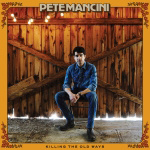
You’ve described the sound of the new album as “Americana power pop,” which feels on the nose, and also begs a question: the Americana influences feel pretty clear, but who are your favorite power-pop artists?
You can’t say power pop without mentioning Big Star. I feel like they invented it; maybe I’m wrong about that, but when I think power pop, I think Big Star. And then there were a lot of bands that came from that, like Teenage Fanclub and The Posies—I’ve been really into them lately, Frosting On The Beater was mind-blowingly good. And your review mentions Fountains Of Wayne—I love them, songs like “Radiation Vibe.”
There’s a lot of great power pop and power pop-influenced stuff with the jangly guitars that dovetails with the Americana of The Byrds. It all connects, it’s like different branches of the same tree. A couple of early reviews of Killing The Old Ways mentioned the power pop angle and that combination—Americana power pop—made sense to me.
The thing about power pop—like all great music—is that when you put on a great album, it really captures the imagination, the way Tom Petty did with his songs. The songs allow listeners to fill in the blanks and imagine themselves in those situations. Those kinds of songs really transport you and make you want to live inside them.
I love power pop and it was cool to work with people who understood that sound and could help me get to that sound a little bit better than I had on previous albums.
How did you connect up with Matt Patton and Bronson Tew, and what was the recording process like?
My buddy Nick Loss-Eaton of Leland Sundries knew I had a group of songs ready and was looking to record an album, and introduced me by email to some clients that worked at Dial Back Sound. We set some dates to record and then the pandemic hit and we pushed it back a few times. We finally started in summer 2020 and had an amazing time even though the world seemed to be going crazy around us. Working with Patton and Bronson was awesome.
What was it like trying to manage the recording process at that point in the pandemic?
I’m not gonna lie: I was scared as hell. This was long before the vaccine, so I just put on my N95 mask and flew down there [to Water Valley, Mississippi] and we holed up in the studio. We only left for food or supplies. We did two weeks of sessions, one week in the summer where we got the first group of songs down, and then a second one in September. By the second week of sessions so much had changed, with the George Floyd protests and the election heating up. Things were going nuts all around us and we were doomscrolling between takes.
At the same time, we had this kind of amazing “becoming a band” moment where I really felt a strong connection with those guys. We brought in a few other great musicians—Jamison Hollister from Dwight Yoakam’s band came in and played pedal steel and fiddle, Horace Willis laid down some great guitar on a few tracks, and Jay Gonzalez from Drive-By Truckers did all the organ, synth and keyboard parts remotely. That was incredibly cool hearing those parts come in. Schaefer Llana, the assistant engineer, sang some great harmonies with Patton and Bronson. It was a great crew.
We made it work the best we could with masking and just holing up in the studio. I can’t wait to make another album and not have to worry so much about COVID—that will be a huge relief.
Everyone’s going to have their stories about this experience the whole world has just gone through, and you’ll be able to tell people about how you recorded an album in the middle of the pandemic.
Yeah! It was a crazy time, that’s for sure. But I’m so glad I went down there and did it, and so happy with how it came out. I feel like you can kind of hear it in the music—the times we were living through, but also the chemistry we had.
Patton is such a great, hands-on producer, full of good ideas—“use this guitar” or “try this out.” We worked on the songs, broke them all down and co-wrote a few tracks, and I feel like we ended up with something greater than the sum of its parts. In the past I self-produced my records and you lose something there, without other perspectives and influences coming in. One example: there’s a Cheap Trick influence on “Old Television” that just wouldn’t have happened if I hadn’t worked with those guys.
It really was an amazing experience, we had an awesome time and I’m super thrilled about the results.
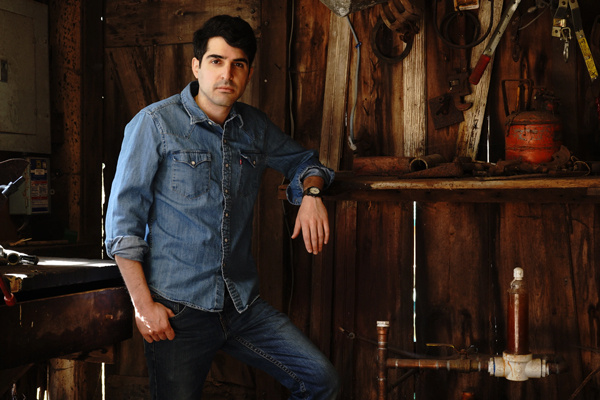
Last time we talked a lot about songwriting. How do you feel like your approach to songwriting has evolved over the last five years?
It’s changed completely over the past few years. When I was in Butchers Blind I was working with a handicap because I was drinking a lot. After I got sober, a lot of emotions came to the surface. It felt like the faucet was turned on in terms of writing songs. I started writing a ton and got into a groove of getting the songs down—you get the idea and then you pin it to the mat. The past couple of years has been a very prolific period. I ended up writing a ton after we recorded Killing The Old Ways and already have the next one written.
Everyone’s method is different, but for me it’s about cataloguing everything and then putting it together like a puzzle. I read Jeff Tweedy’s book How To Write One Song and realized that my method lined up pretty much perfectly with his method; he’s always been a big influence so that was kind of a cool thing. He talks about having “one-liners” and little pieces of music and eventually they all come together. You’ll write a verse and it might not work out for a while, but then you’re like “Oh yeah, this chord progression over here is perfect for this.” And then you have a song.
I used to tell myself “Don’t rush things” and wait for inspiration to come, but you could be waiting forever. You just have to go out and live life and pluck songs out of the air where you find them. I feel like I’ve reached a cool point from where I started; I have faith in the process now and don’t fear writer’s block. I just go with the flow.
What’s your favorite song on the new album, and why?
One that stands out for me is “Madison Avenue Blues”—I’m just so happy with how that came out. It went through several iterations before it ended up with that arrangement and then I remember hearing that end part that Jay Gonzalez laid down remotely. It was such an emotional high, almost a brought-me-to-tears kind of moment. To feel something come together in that way is very special. Everyone sounds so good, Patton’s bass playing, Bronson’s drumming, it’s like “This is it. We nailed it.” It’s probably my favorite recording I’ve ever been a part of. It’s kind of a love song to New York City even if the lyrics don’t really seem that way.
You’ve been able to get out and play some live dates recently. Which tunes from the new album are you having the most fun playing live right now?
One of my favorites to play is “Why The Building Falls”; it’s got that riff and I love playing it. I like to open with “Standing In The Shadows.” We’ve been playing all of them at band shows recently, and some at solo shows. It’s been great to finally get these songs out in front of an audience. That’s kind of the acid test, how they play in a set, and telling the stories behind them.
A lot of these songs feel like diary entries in a way; you can think back to the time and place when you wrote them. For me, one of the cool things about these songs is seeing other people connect with them too. I’m very excited to be out there playing and I’m looking forward to touring on this record.
Your friend and fellow songwriter Travis McKeveny, who co-wrote “Killing The Old Ways,” passed away unexpectedly last year. Please tell us about the song, and Travis.
Travis was my best friend and brother-in-arms. Losing him last year was devastating, and still is. But he left us with a lot of beautiful music and I’m grateful that I had so many chances to write with him. We co-wrote a bunch of songs and there’s one on every one of my albums, and he co-wrote the title track of this record.
We talked all the time and a lot of our conversations would spawn songs, and “Killing The Old Ways” was one of them. We wrote it in three-quarters time, waltz time, and then when I presented it to Patton, he had us try it as this folk-rock song. It ended up in a completely different place—now it sounds like it could have been on Desire—but that song is about a struggle between generations. It’s a powerful message that relates to everything we were going through at the time we recorded it, trying to cast aside old ideas and make the world a better place.
Luckily I got to send Travis a lot of tracks as we were working on them and he loved how it was coming out. I wish he was around to see this release, but in the wake of his loss we’re keeping his band [The Famous Doctor Scanlon Band] going and we’re going to finish his third album Dublin To Duluth.
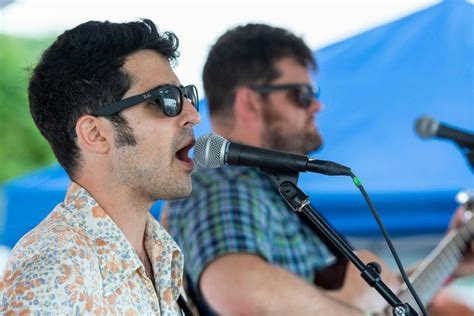
Last October on Bandcamp you released a couple of mostly acoustic songs from the Dial Back Sound sessions, “Old Wooden Cross” and “Potter’s Field.” Tell us about that release.
When we cut the album we ended up recording 12 tracks, and when we synced everything up and had stuff in a running order, those two tracks didn’t really fit with the overall vibe of the album. Patton wisely said “Save these two tracks for another release.” I love how those tracks came out; they’ve got that ’70s “country gold” kind of production, recorded live to tape. I love the songs, and one of them is another co-write with Travis.
And then with vinyl delays and so many things going on with the pandemic, I ended up pushing out the release date for the album by a whole year. So to tide people over and get something out, I decided to put these two tracks out as a single, dedicated to Travis and benefiting Backline, a charity that connects musicians with mental health resources. I’m really happy that we were able to raise some good money for Backline in Travis’ name—they’re doing really important work and it was a great opportunity to raise money for a good cause.
Tell us about the dates you’re in the middle of doing where you’re opening for Jimmy Webb. How did that come about, and what has that experience been like so far?
My buddy Norm Prusslin, who runs things over at WUSB, knows Laura Savini, Jimmy’s wife and manager. They were looking for someone to help assist them with a few tech projects related to his music, and Norm suggested me. I ended up going to work for Jimmy as an assistant, and over time we got to know each other and hit it off. It’s been super cool getting to know Jimmy and hear all his stories. Eventually, as songs were coming out for the album, I shared a few with Jimmy and he liked them. That was a great feeling—if Jimmy likes it, it’s got to be good.
Then Jimmy offered me a few dates to open on his current tour. I just played one yesterday and it was amazing—Jimmy loved the set, the audience loved the set. In fact, it was funny, Jimmy went out there after I opened and said “That’s the last time I’m ever taking Pete on the road!” [laughter] We had a great time.
What’s crazy is that during the recording sessions for the album Patton and Bronson and I talked about Jimmy Webb, and then by chance months later I ended up working for him and becoming friends with him. You can’t make this stuff up.
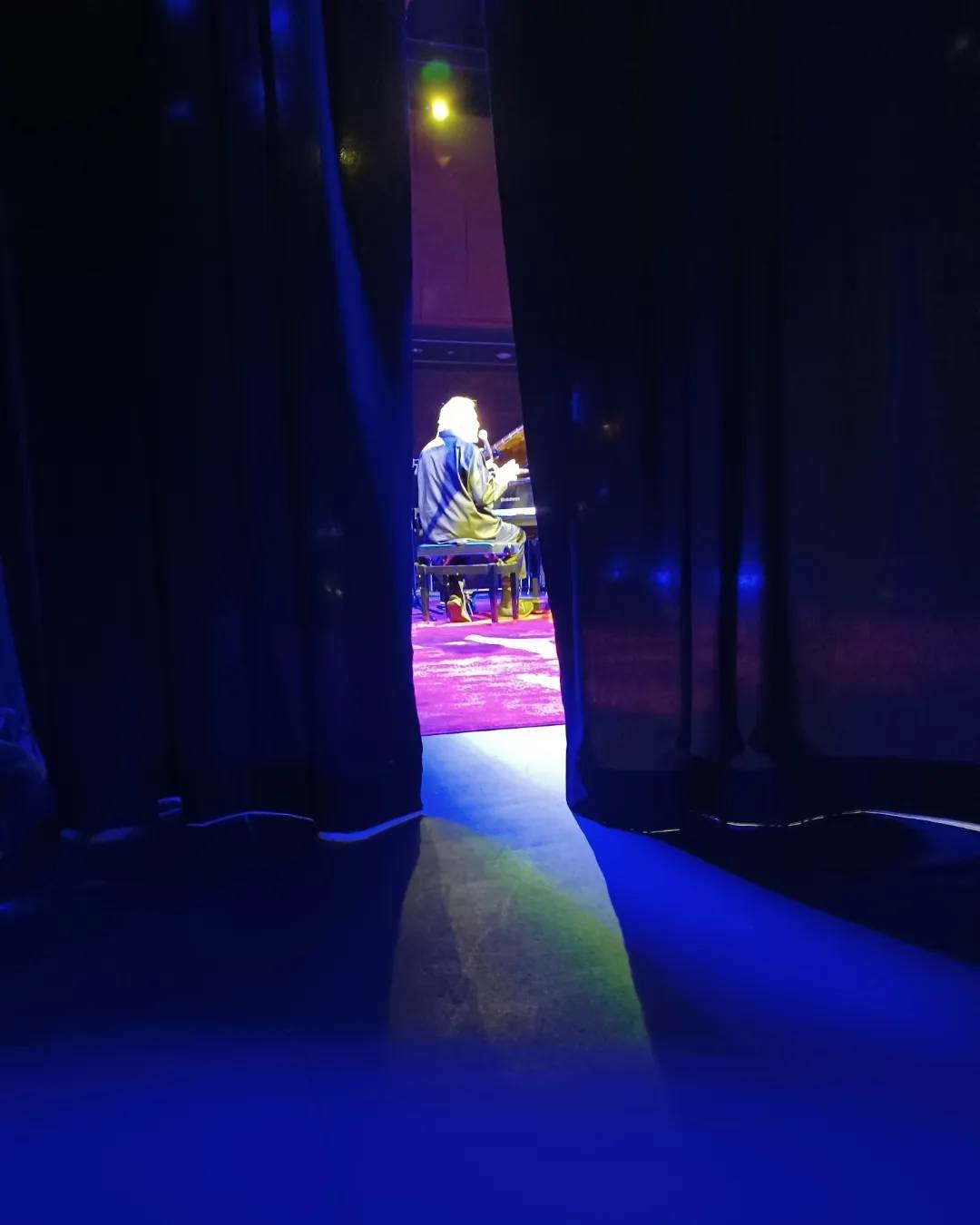
Jimmy Webb, from backstage
You’re playing live in three different configurations these days: solo, with your backing band the Hillside Airmen, and with the Famous Doctor Scanlon Band. Tell us a little about how each fits into your musical picture.
Each gig has its own vibe and things that I love about it. I love playing solo because I can play pretty much anything from my repertoire and I can connect with people on a more intimate level. I love playing with the Hillside Airmen because I love cranking up with those guys, and we just added my buddy Chris James (of The Hideaways) on B3 and pedal steel. He brings a whole new dimension to the sound and now we can play those parts from the record.
With the Famous Doctor Scanlon Band, I feel like that’s the most important stuff I’m doing because we’re keeping Trav’s music alive. We’ve been sounding great, we’ve been doing rehearsals, and we got my friends Dave March and Cassandra House in the band. It’s been a beautiful thing—tough at times of course, but also a beautiful thing that we get to keep playing these songs. Eventually we’re going to go into the studio and record Dublin To Duluth, Trav’s third album. It has some of his best songs and we’re going to get that over the finish line. That’s super important to me because I feel like we have to keep carrying the torch.
Had Travis done any recording for the album?
No. We’d just gotten to the point where we were talking about booking some studio time and then he was gone. It was heartbreaking. All the arrangements were set, all the tracks were ready to go, the track listing, everything was ready. Pre-production was done. Basically all that’s left for us to do is record it. It’s gonna be tough, it's gonna be bittersweet without him. But he was proud of these songs and we’re going to do them justice and get it over the finish line.
That’s a great thing to do for a friend. So, since we haven’t talked in a while, I wanted to ask about a couple of things that happened since our last conversation. What are your favorite memories from the Flying First Class album, from 2019?
We did a lot of touring on that record with the Hillside Airmen and played a lot of great shows. I also did a tour with Travis, which was a lot of fun—we went out for a few days in the New England area. In retrospect I feel like maybe that record was a little rushed in its writing and recording, but there are moments that I’m really proud of on there. I still love playing “Back In Bakersfield,” which was another co-write with Trav.
The main thing is, everything from that record led me to where I am now. Records are cool that way. From Foothill Freeway to now seems like a pretty cool trip.
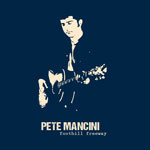
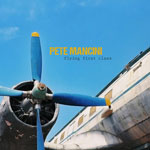
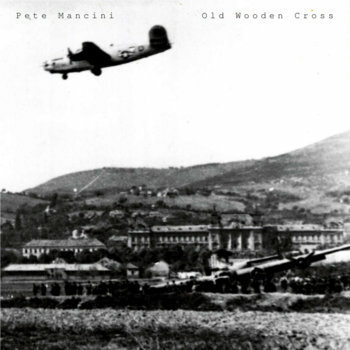
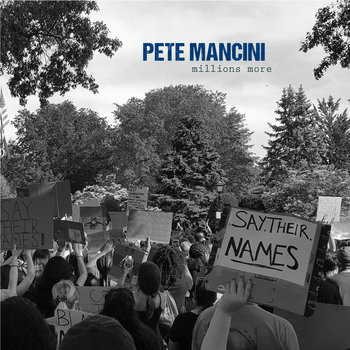
Then in fall 2020, you released the single “Millions More,” along with “Seven Generations.” Tell us about those songs and how they fit into that particular moment.
That was a crazy time. We were all trapped inside, and then George Floyd was murdered and all those protests happened. The response we saw from the administration at the time was frightening and I felt like we were headed for martial law or some other erosion of freedoms. In some cases, like in Portland, they were just disappearing people into vans. I saw things that I never thought I would see in this country. We were watching all this stuff go down and those songs were born of that time.
It was a time of looking inward and trying to listen and learn. What I thought that I could do from my humble platform was to raise some money for some important charities, and that’s what we did with those singles.
That was also my first stab at recording at home, which we were all forced to learn how to do during the pandemic. I recorded guitar tracks at home and sent them to my friend Joe Leone, who did drums, and then my friend Nick Loss-Eaton played some blues harp on one song.
Thank God things panned out the way that they did with the election, but we still have a long way to go, we still have a lot of learning and healing left to do. I don’t know if we’re ever going to fully recover from what we just went through as a country. Hopefully we can repair our institutions and become stronger, but we’ll have to see. At a minimum, I hope the people who brought us to the brink are held accountable for their actions.
Who else is making music right now that you’re excited about?
I’ve been listening to and enjoying a lot of Hiss Golden Messenger. I’m kind of late to the party on that band, but I really dig their stuff. I’ve been listening to a ton of James McMurtry—Trav introduced me to him and I love his writing. And a lot of Jimmy Webb stuff—I always knew the big songs, but to discover the wide range of stuff he wrote for so many different artists has been eye-opening. His album Ten Easy Pieces is really incredible, just him playing some of his best-loved songs.
What’s next for you?
I already have the next album written. I went on a tear after I finished the last album, wrote about 28 songs and there’s definitely a record in there.
When you’re writing, you eventually write the song that raises the bar from the last group of songs. And I hit that with a song called “If Heaven Was A Train.” It was the first time I cried when I wrote a song. The things I was going through, when I got to the second verse I just started welling up, because it’s a song about the ones we love, and like you put it, the remembering of the ones that we love, and the afterlife and what’s out there.
When I wrote that song, I knew I had another record on the way. There’s also a couple of Trav co-writes in this next batch, and some new sounds. I’m hoping to bring the songs back to Patton and Bronson and do another record with them, which will probably be called If Heaven Was A Train.
Of course, I want to get Killing The Old Ways launched and tour behind it before going back in the studio, but I’d say the next album is mostly in the bag already in terms of writing. I’m excited to get back in the studio when the time is right.